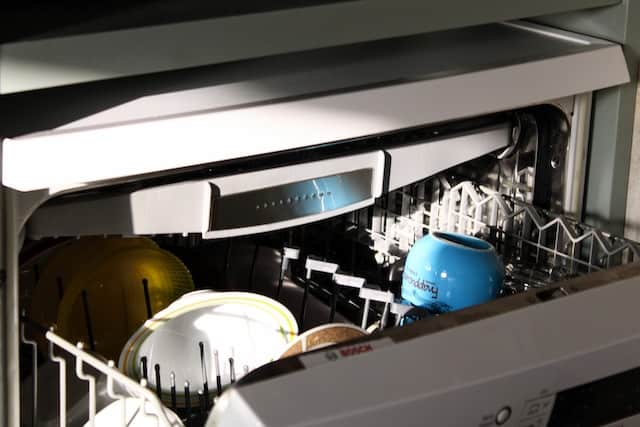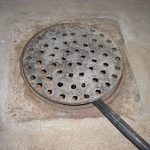As someone who has dealt with clogged drains in the past, I know how frustrating it can be to have a dishwasher that won’t drain properly. When faced with this issue, it’s tempting to reach for a quick fix like Drano. However, using Drano in a dishwasher can cause more harm than good.
Drano is a powerful chemical that’s designed to dissolve clogs in pipes. While it may work well in sinks and shower drains, it’s not meant to be used in a dishwasher. In fact, using Drano in a dishwasher can damage the appliance and even pose a safety risk to you and your family.
In this article, I’ll explore why you should avoid using Drano in your dishwasher and what alternatives you can try instead. Whether you’re dealing with a minor clog or a more serious blockage, it’s important to take the right steps to keep your dishwasher running smoothly and safely.
How do Dishwashers work?
I find dishwashers to be one of the most convenient appliances in the kitchen. They are designed to clean dishes by spraying hot water and detergent onto them, scrubbing them clean, and then rinsing them with clean water. Dishwashers are equipped with several components that work together to clean dishes efficiently.
The first component is the water inlet valve
When you turn on the dishwasher, the water inlet valve opens to allow water to flow into the machine. The water is then heated to a temperature of around 120°F to 140°F by the heating element. Once the water is heated, the dishwasher’s pump circulates the water around the machine, spraying it onto the dishes.
The second component is the detergent dispenser
The detergent dispenser releases the detergent at the right time during the wash cycle. The detergent is mixed with the hot water to create a cleaning solution that removes food particles, grease, and other dirt from the dishes.
The third component is the dishwasher’s spray arm
The spray arm is responsible for spraying water onto the dishes. It is usually located at the bottom of the dishwasher and rotates during the wash cycle to ensure that all the dishes are cleaned thoroughly.
The fourth component is the dishwasher’s filter
The filter is designed to trap food particles and other debris that may be present on the dishes. It prevents the debris from clogging the dishwasher’s drain and causing a blockage. Some dishwashers have a self-cleaning filter that cleans itself during the wash cycle, while others require manual cleaning.
Overall, dishwashers are a great addition to any kitchen. They are designed to clean dishes quickly and efficiently, and they use less water than washing dishes by hand. However, it is important to use the right detergent and to keep the dishwasher’s filter clean to ensure that it works properly.
Why You Shouldn’t Use Drano in a Dishwasher
As someone who has dealt with a clogged dishwasher drain before, I understand the frustration that comes with it. However, using Drano to unclog your dishwasher is not a good idea.
Why?
- Drano contains harsh chemicals that can damage the plastic parts of your dishwasher.
- Drano can leave toxic residue on your dishes, which is not safe for you and your family to ingest.
- Drano is not designed to unclog dishwasher drains. It is meant for clearing clogged sink, tub, and shower drain pipes.
Instead of using Drano, there are other ways to unclog your dishwasher drain that are safer and more effective. One option is to use a mixture of baking soda and vinegar.
Here’s how:
- Remove any visible debris from the dishwasher drain and spray arms.
- Pour half a cup of baking soda down the drain.
- Pour one cup of vinegar down the drain.
- Let the mixture sit for 15-20 minutes.
- Run hot water down the drain to flush out the mixture and any remaining debris.
If the above method doesn’t work, you can also try using a plumber’s snake or calling a professional plumber to help unclog your dishwasher drain.
Remember, using Drano in your dishwasher is not worth the risk of damaging your appliance and potentially harming your health. Stick to safer and more effective methods for unclogging your dishwasher drain.
What to Do Instead
Instead of using Drano to unclog your dishwasher, there are several alternatives that you can try. Here are some of the most effective methods:
Clean the dishwasher filter
The filter is designed to catch food particles and debris, but over time it can become clogged. Cleaning the filter regularly can prevent clogs and help your dishwasher run more efficiently.
Check the drain hose
The drain hose is responsible for removing water from the dishwasher. If it becomes clogged or kinked, water may not be able to drain properly. Check the hose for any obstructions and straighten it out if necessary.
Use vinegar and baking soda
A mixture of vinegar and baking soda can be an effective way to clear minor clogs in your dishwasher. Simply pour a cup of vinegar into the bottom of the dishwasher and sprinkle baking soda on top. Let the mixture sit for a few minutes, then run a hot water cycle.
Manually unclog the drain
If none of the above methods work, you may need to manually unclog the drain. This involves disconnecting the drain hose from the garbage disposal or sink tailpiece and using a wire or other object to remove any obstructions.
Remember, using Drano in your dishwasher can cause damage to the appliance and may not effectively unclog the drain. By trying these alternative methods, you can safely and effectively remove clogs and keep your dishwasher running smoothly.
5 Tips for Avoiding Dishwasher Clogs
As someone who has dealt with a clogged dishwasher before, I know how frustrating it can be.
Here are some tips to help you avoid dishwasher clogs in the first place:
- Scrape off excess food particles from plates and utensils before placing them in the dishwasher. This will help prevent food buildup in the drain and filters.
- Run hot water in your sink before starting the dishwasher. This will help ensure that hot water is flowing through the dishwasher and can help dissolve any leftover food particles.
- Regularly clean the dishwasher’s filters and spray arms. This will help prevent buildup and ensure that water is flowing freely through the dishwasher.
- Use dishwasher-safe detergents and rinse aids. Using the wrong type of detergent or rinse aid can cause buildup and clogs in your dishwasher.
- Consider using a dishwasher cleaner or descaler. Over time, hard water and mineral deposits can build up in your dishwasher, causing clogs and affecting its performance. A cleaner or descaler can help remove these deposits and keep your dishwasher running smoothly.
By following these tips, you can help prevent clogs in your dishwasher and ensure that it continues to work effectively. Remember, prevention is key when it comes to dishwasher maintenance!




